On Sunday, 6 December, Venezuela held parliamentary elections in which Tamara Adrián of the Mesa de la Unidad Democrática (MUD, Democratic Unity Roundtable) was elected, becoming the first trans deputy in the country’s history.
The MUD is a coalition of political parties that arose as opposition to the governing Partido Socialista Unido de Venezuela (Venezuelan United Socialist Party). Yesterday the MUD took more than half of the seats in Parliament, meaning that in place of a pro-government majority there is now an opposition majority facing the current government, led by Nicolás Maduro.

Tamara is a lawyer with a doctorate degree in corporate law, and a professor of law at three prestigious Venezuelan universities, including the Universidad Central de Venezuela (UCV, Central University of Venezuela.)
Tamara is a renowned activist both in Venezuela and abroad in the campaign for LGBT rights. One of her main lines of action in Parliament will be to advocate for laws that recognise diversity in the population in all its forms.
“Venezuela is last in recognising the identity of trans people. Today Mexico, Colombia, Ecuador, Uruguay, Argentina and Chile all recognise it following administrative proceedings. In Brazil it’s a little trickier because it’s still necessary to resort to the courts,” said Tamara in an interview published on the Unión Radio website.
Although she is recognised by the media as a trans woman and an activist in a political party, her role is not just limited to responding to the needs of the LGBT population. In the same interview she said, “Aside from my role as a defender of human rights, as a defender of the LGBT community, don’t forget that I specialise in economic law, capital markets, foreign investments, that’s what I’ve been working on in these last thirty years.”
 Subsequently, on innumerable occasions Tamara has stated that her role will focus on the demand for reliable public information and accountability, as well as reforms to economic laws that are paralysing production in Venezuela, leading to shortages, high inflation and widespread economic crisis.
Subsequently, on innumerable occasions Tamara has stated that her role will focus on the demand for reliable public information and accountability, as well as reforms to economic laws that are paralysing production in Venezuela, leading to shortages, high inflation and widespread economic crisis.
But Tamara is not the only parliamentarian who is part of the LGBT community. Rosmit Mantilla, an alternate candidate for the MUD, was also elected.
Rosmit is a student of law and social communication and is currently one of many political prisoners, arrested arbitrarily in 2014 and held at the Servicio Bolivariano de Inteligencia (Sebin, Bolivarian Intelligence Service), in Caracas. Having been elected, Rosmit could now be freed due to the parliamentary immunity set out in article 200 of the Venezuelan Constitution.
Pro-government activists reject their LGBT political peers
The only two openly LGBT deputies are part of the opposition in Venezuela.
Although the Partido Socialista Unido de Venezuela and the Gran Polo Patriótico (Great Patriotic Pole) also have LGBT militants in their ranks, having held primary elections to elect their sexually diverse candidates for the parliamentary elections, in which Rummie Quintero, Leandro Viloria and Luis Marchán were elected, these candidacies were rejected by the leadership of these parties.
 Trans woman Rummie Quintero, in the light of her rejection by the pro-government parties, wrote in her Facebook account “Good evening to the sexually and gender diverse people of Venezuela. This message is for the millions of brave homosexuals, lesbians, bisexuals and trans people who go out every day to fight homophobia wherever they find it. Brothers and sisters, unfortunately for now the goals that we set for ourselves have not been met in the PSUV, that is, we here in the PSUV lost a battle against homophobia, others fought it very well in their parties and now it is time for reflection. There will be other battles to fight and the country has to get on the right path and advance definitively towards full equality and the approval of our rights. We will continue to advance in the organisation, formation and mobilisation of our political movement. Thank you for your loyalty.”
Trans woman Rummie Quintero, in the light of her rejection by the pro-government parties, wrote in her Facebook account “Good evening to the sexually and gender diverse people of Venezuela. This message is for the millions of brave homosexuals, lesbians, bisexuals and trans people who go out every day to fight homophobia wherever they find it. Brothers and sisters, unfortunately for now the goals that we set for ourselves have not been met in the PSUV, that is, we here in the PSUV lost a battle against homophobia, others fought it very well in their parties and now it is time for reflection. There will be other battles to fight and the country has to get on the right path and advance definitively towards full equality and the approval of our rights. We will continue to advance in the organisation, formation and mobilisation of our political movement. Thank you for your loyalty.”
There is no doubt that homophobia and fundamentalism can be found in all political parties, but this was not expected from the left-wing parties, as president Maduro himself on numerous occasions has raised the flag of sexual diversity in his speeches, the LGBT community has always been named and has been present at different events and political gatherings. However, apparently the only goal of these actions was to get additional votes.
Battles to come
There is a bill for same-sex marriage in Parliament that has been shelved. It was supposed to be discussed in August of last year but did not even reach the floor of a Parliament which, at the time, had a pro-government majority.
Furthermore, the Supreme Court has postponed its response to Tamara Adrián’s request to reassign her gender identity on her identity card, as for now her legal name is Tomás Adrián.
In addition, issues such as gender reassignment, adoption by same-sex couples, same-sex marriage or reassignment of gender identity are not talked about in Venezuela, nor are trans women included in the Women’s Ministry’s feminist activities and different women’s institutes at state level.
There is clearly a long way to go, not only in terms of human rights, but also in the search for economic growth, and it is hoped that Tamara and her peers in the legislative power will open up a path in a Parliament that, after twelve years, now has an opposition majority.






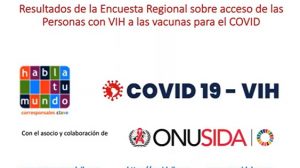
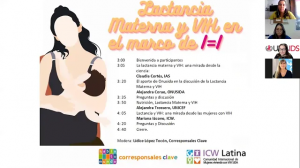
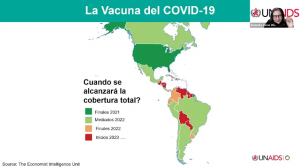
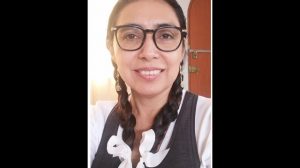
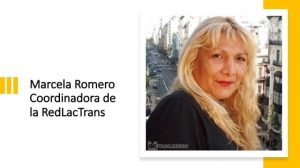
Añadir comentario